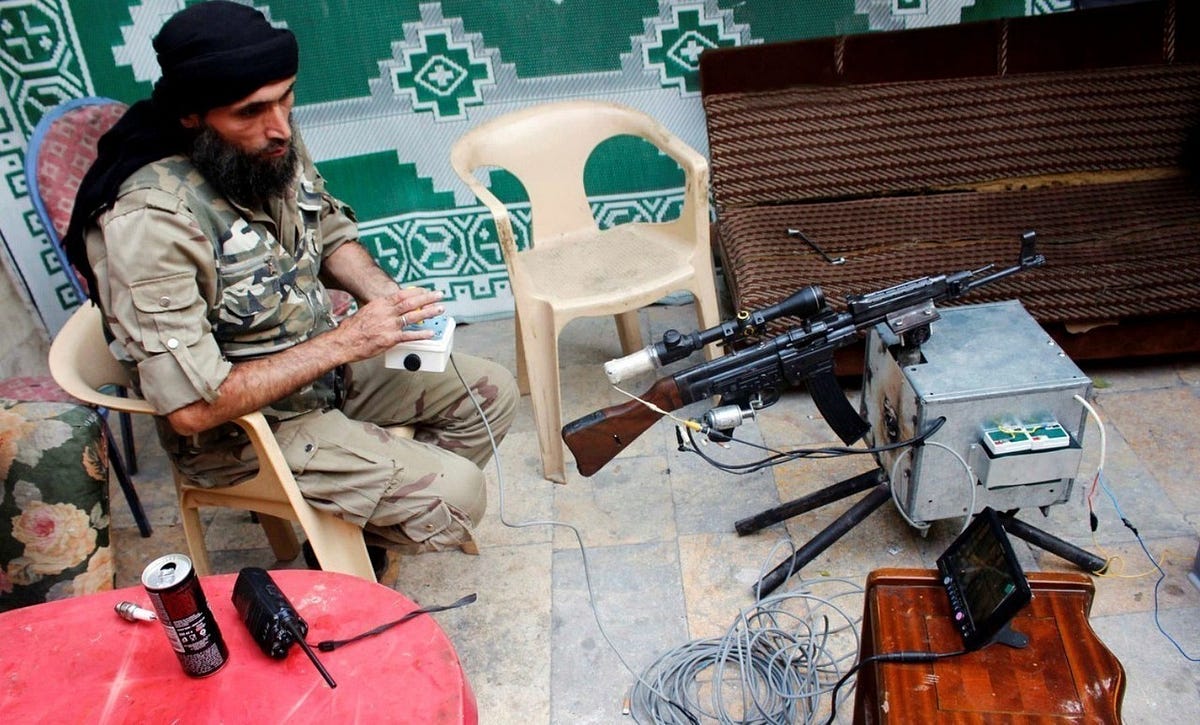
Teleoperated weapons will likely proliferate widely
The Syrian civil
war is producing a multitude of remotely-operated, custom-made killing
machines — sniper rifles and machine guns which a shooter can trigger
remotely with the push of a button.
Remotely-operated
guns are common in militaries around the world. The United States has
thousands of them mounted on tanks and other armored vehicles. The U.S.
Marine Corps is testing a smaller machine-gun robot called MAARS, and
other gun-bots have appeared in South Korea, Israel and Russia.
But
their adoption by rebel groups is an innovation arising from an
intermingling of war, cheap personal computers and cameras. The devices
typically use cables to hook up the guns to control stations. Aside from
the gun, a complete setup only costs a few hundred bucks worth of
off-the-shelf components and some technical skills.
After
that, it’s just a matter of swiveling the now-teleoperated gun with a
joystick, gamepad or a keyboard and triggering the firing mechanism.
It’s a highly effective means of denying an area to the enemy while covering one’s self from fire.
See,
it’s suicide in warfare to not suppress your foe’s machine guns before
maneuvering. Since a teleoperated gun cannot easily be suppressed, an
attacking force’s job becomes all the more difficult.
While the weapons are hardly new to the Syrian battlefield, an August report
published by the U.S. Army’s Foreign Military Studies Office listed 20
distinct teleoperated weapons spotted in Iraq and Syria which can be
traced to specific armed factions.
More @ War Is Boring

No comments:
Post a Comment